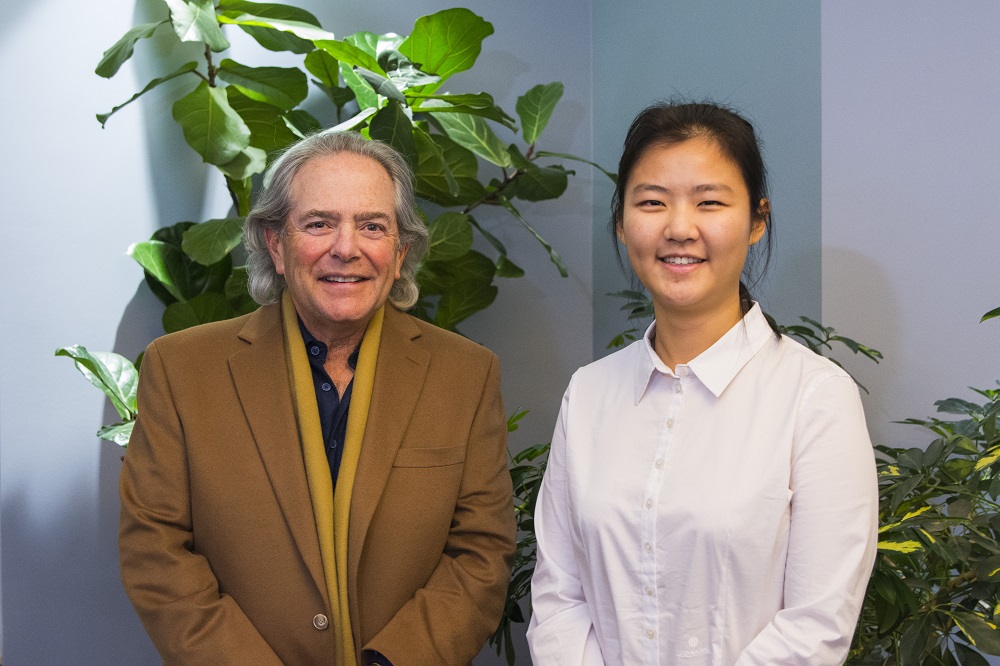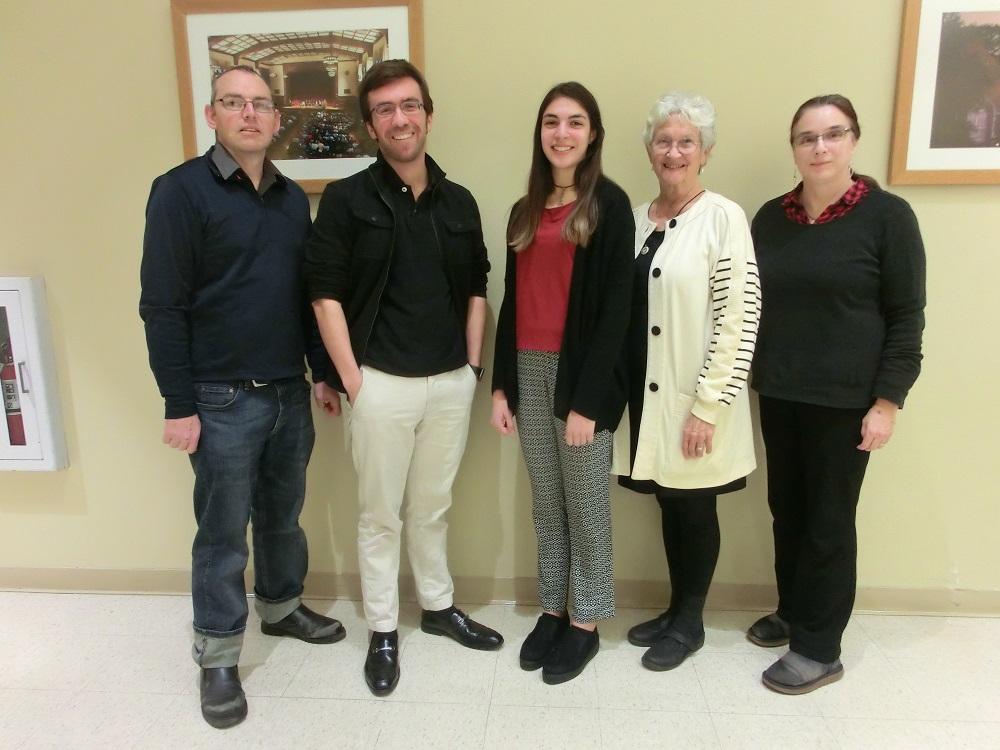Grad student researcher Weijia Tao ’16 has had a fascination with mechanical things since her childhood, so it may come as no surprise that she has won the prestigious Kalenian Award, the university’s top entrepreneurial prize—for inventing a soft robotic hand whose silicone "fingers" can facilitate picking up and packing small items in warehouses.
The Kalenian Award, a competition established in 2006 by Alba Kalenian in memory of her late husband, inventor Aram Kalenian ’33, supports innovative ideas or the development of commercial products. The 2017 awards were presented by their son, Paul Kalenian, during a ceremony recently at WPI’s Rubin Campus Center.

Weijia Tao
The $10,000 award is the first Tao has won for her invention. “It indicates we are going in the right direction and gives us confidence,” she says. “It is a surprise that we won first place. There were a lot of good projects in this year’s application, and I think our school is very encouraging when it comes to student invention.”
The Kalenian Award demonstrates a commitment “to the later stages of innovation,” says Gina Betti, associate director of the Foisie Business School, who has managed the competition since its inception. “On the early side of the innovation, or commercialization spectrum, WPI provides laboratories, major equipment, office space, and support staff to its campus community,” she says. “But at the other end of the spectrum, where the research or project is ready for prototyping or beta-testing with potential customers, non-dilutive infusions of funding such as from a Kalenian Award are very difficult to find outside of the campus due to the high risk it entails. Through prizes like the Kalenian Award, WPI is demonstrating strong intent to help applicants step from one milestone to the next in that commercialization spectrum.”
Tao is part of PowerHive LLC, a start-up company based in Natick, which is developing safer, softer, and smarter robotic solutions to everyday problems. She and Cagdas Onal, assistant professor of mechanical engineering, came up with the idea to use electric motors to operate soft so-called fingers when they were developing the soft hand using hydraulics. The hand actually fits onto a robotic arm. “Our soft hand can physically grab anything it wraps its fingers around,” Tao says, such as tissue boxes or other items being picked or packed in a warehouse. It can also perform tasks now requiring the fine motor skills of a human such as packing individual donuts into a box. The touch of the soft hand is so gentle it can grasp an egg without crushing it.
Funding from the award will allow Tao to continue improving the motor and design of the first prototype, try different iterations, and bring the robotic hand into local warehouses to see how it performs different tasks. In terms of future potential, the agricultural industry could benefit by using a robotic hand to pick and pack fruit with the help of mobile robotic arms. Tao also notes the possibility of designing different-sized “fingers,” allowing for custom grips for custom tasks such as moving large boxes in a warehouse.
People also stand to benefit from this invention, as the robotic hand could free them from doing repetitive work on assembly lines so they can do more “creative” jobs, such as programing, training, and maintaining the robots, Tao adds. “We are not replacing human work, we are leveling up the work of a production line to be more efficient,” she explains. “We will definitely improve our product and benefit more people."
- By Lauren Curran



